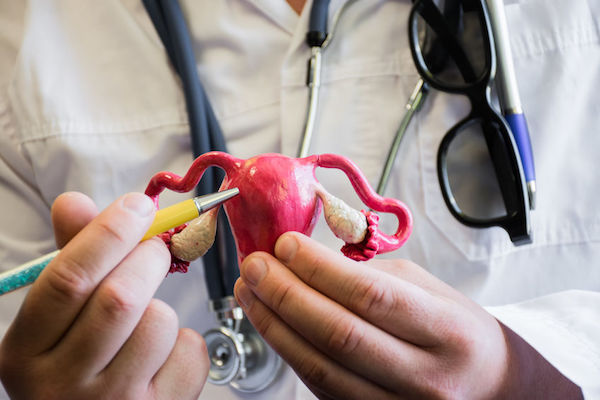Pelvic inflammatory disease (PID) is the infection of a woman’s reproductive organs and one of the most damaging complications of a sexually transmitted disease (STD).

If left untreated, PID can lead to serious, long-term effects including infertility, ectopic pregnancy (also known as a tubal pregnancy), and damage to a woman’s reproductive organs such as the fallopian tubes, ovaries and the uterus.
PID’s causes include complications caused by STDs, like chlamydia and gonorrhoea – reportedly, about 90% of PID infection are from these STDs if left untreated.
Abortion, childbirth and pelvic procedures can also cause PID.
Risk factors for PID include:
- Multiple sex partners
- Untreated STDs
- A sex partner who has multiple sex partners
- If you’ve previously had a PID, you have a higher chance of recurrence
- Using an intrauterine device (IUD) for birth control
If you are sexually active, you can do the following things to lower your chances of getting PID:
- Staying in a faithful long-term relationship with a partner who has been tested and has negative STD test results
- Using latex condoms every time you have sex
What are its symptoms?
PID symptoms include:
- Pain in your lower abdomen
- Back pain
- Fever
- An unusual discharge with a bad odour from your vagina
- Pain and/or bleeding during sex
- Burning sensation when you urinate
- Bleeding between periods
See your doctor if you think you or your sex partner(s) have or were exposed to an STD or you have any of these symptoms above.
Get a test for chlamydia every year if you are sexually active and 25 years of age or younger.
How is it diagnosed?
There’s no one test for PID; it is diagnosed based on your symptoms and a gynaecological examination. Your doctor will ask about your medical and sexual history and conduct a pelvic examination to check for any tenderness and abnormal vaginal discharge.
Swabs are usually taken from the inside of your vagina and cervix and sent to a laboratory to look for signs of a bacterial infection.
As PID can be difficult to diagnose, other tests may also be required to look for signs of infection or inflammation, or to rule out other possible causes of your symptoms. These tests may include:
- Urine test or blood test
- Pregnancy test
- Ultrasound scan
In some cases, laparoscopy (keyhole surgery) may be used to diagnose PID. A thin camera is inserted so that the doctor can look at your internal organs and, if necessary, take tissue samples.
What are your treatment options?
If PID is left untreated it can lead to more serious, long-term effects. These include ectopic pregnancy (also known as a tubal pregnancy), abscesses and infertility. Thus it’s crucial that you seek treatment immediately if you notice any of its symptoms or those of an STD.
If it’s diagnosed early, PID can be treated with antibiotics. You’ll usually have to take the antibiotics for 14 days, sometimes beginning with a single antibiotic injection. It’s important to complete the entire course, to make sure the infection has cleared up properly. In particularly bad cases, you may have to go to hospital to receive antibiotics intravenously (through a drip in your arm).
Tell your doctor if you think you may be pregnant before starting antibiotics, as some antibiotics should be avoided during pregnancy.
Unfortunately PID can cause abscesses which means that you may need surgery to remove them to ensure they don’t burst and cause more damage. If an abscess forms on your uterus or ovaries, these reproductive organs may need to be removed.
Can it be prevented?
It is preventable. Reduce your risk of contracting it by following these steps:
- Practice safe sex
- Some forms of contraception may affect your risk of developing PID. An IUD device may increase your risk of PID temporarily for the first few weeks after insertion, but a barrier method, such as a condom, reduces your risk
- Using a birth control pill may offer some protection against the development of PID by causing your body to create thicker cervical mucous, making it more difficult for bacteria to reach your uterus, fallopian tubes or ovaries
- Set up a regular screening schedule with your doctor, if you’re at risk of an STD.
- Don’t douche as it upsets your vagina’s bacteria balance.
How Clicks Clinics can help you
Unprotected sex increases your risk for HIV/AIDS. Clicks offers HIV testing and counselling at our clinics, simply call 0860 254 257 or book with Clicks Clinics online to make an appointment.
Shop online at Clicks.co.za for condoms
Don't be caught unawares – rather stock up on condoms here so that you can ensure you're practising safe sex at all times.
IMAGE CREDIT: 123rf.com
